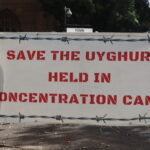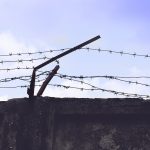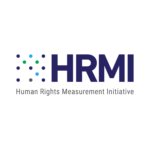Bans on Human Rights Abusers are Set to Become Law

Laws which ban human rights abusers and cyber criminals from entering, trading in, and holding bank accounts in Australia are set to pass federal parliament.
Under these laws, known as ‘Magnitsky laws’, the government can impose strict prohibitions on criminals seeking to use Australia for money laundering, seize their assets and ‘name and shame’ them.
What are Magnitsky Laws?
The Australian legislation is modelled on the United States’ Magnitsky Act.
The law derives its name from United States prohibitions on the individuals responsible for the murder of Russian lawyer Sergei Magnitsky for exposing multi-billion dollar tax fraud committed by Russian autocrats, that pillages the nation’s resources at the expense of its citizens.
Similar laws which give governments the power to impose visa and property-related sanctions on individuals who commit serious human rights abuses and corruption have already been passed in Canada, the US and Britain. Australia has now followed suit, although the Australian laws go one step further and include cyber hackers.
The legislation will operate without national boundaries imposing penalties on individuals or companies, including freezing and requisitioning assets and travel bans, for acts performed outside Australia’s geographic jurisdiction
Liberal senator James Paterson, one of the first MPs to push for Magnitsky-style laws, says the Act will not only equip the Australian Government to target those who abuse human rights or engage in seriously corrupt conduct, but also those who threaten our national interest in the cyber realm.
“This will become an increasingly important tool in helping shape and deter our adversaries,” he says.
Human rights abuses
When Britain legislated its Act earlier this year, it immediately sanctioned 49 individuals and organisations accused of human rights abuses from four different countries, including Chinese officials over human rights breaches against Uighurs in Xinjiang.
China has been accused of committing crimes against humanity and possibly genocide against the Uyghur population and other mostly-Muslim ethnic groups in the north-western region of Xinjiang over the past several years.
Human rights groups believe China has detained more than one million Uyghurs against their will over the past few years in what the state calls “re-education camps”, and also sentenced hundreds of thousands Uyghurs to prison terms. There is also evidence of forced labour and of women being forcibly sterilised. Some former camp detainees have also alleged they were tortured and sexually abused.
Existing human rights laws have been found to have limited effectiveness in dealing with these types of crimes, so updated, purposeful legislation has been required. Because the US, Canada and the UK have recently enacted Magnitsky laws and the EU is not far behind, the laws have the potential to create a global sanctions system if they are widely and consistently adopted and applied across all of these jurisdictions.
Governments found to have committed atrocities will not be the only targets of these laws. The laws will make it easier to sanction corporate organisations and individuals who engage in human rights abuses, corruption or cyber crime.
How does the law work?
In simple terms, cyber hackers, human rights abusers and corrupt officials often get very rich by exploiting weaknesses in the legal systems of their own countries or stealing from government owned corporations.
The law makes it harder for them to actually invest or spend the proceeds from these crimes, and because they are publicly named, other countries can follow suit. This type of global cooperation then allows for assets to be frozen, visas denied, travel becomes much more difficult.
The Australian Act has been in development for some time, and has input from legal experts around the world, including American Human Rights lawyer Amal Clooney and pre-eminent Australian lawyer Geoffrey Robertson AO QC.
Foreign Minister Marise Payne, who sparked the development of the laws, has stated they are an “important reform”.
“Denying perpetrators and beneficiaries of egregious acts from accessing our economy is essential, and ensures they cannot benefit from the freedoms our democracy and rules-based society allows,” she says.
Human Rights Watch Australia has also welcomed the laws, saying they are a “significant step to promote accountability for human rights in foreign policy”.
“People who commit serious abuses or corruption with impunity should not be able to travel to Australia or hide their assets in Australian bank accounts.”







